News
-
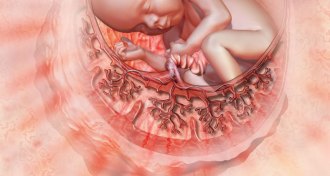 Life
LifeIn a surprise find, placentas harbor bacteria
Mouth bacteria make their way to the placenta. Some mixes may trigger premature birth.
-
 Quantum Physics
Quantum PhysicsQuantum cryptography could shed test for hackers
An added protection of a proposed quantum cryptography method makes eavesdropping nearly impossible.
By Andrew Grant -
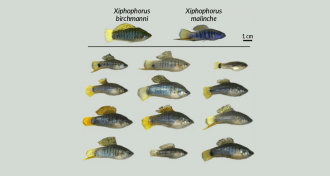 Life
LifeGenes gives clues to outcome of species interbreeding
Genetics provides clues to why hybrid river fish formed a subspecies but insects formed a new species.
-
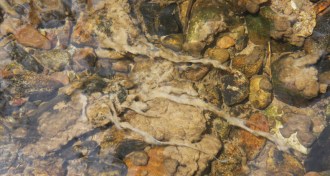 Climate
ClimateEnvironmental change may spur growth of ‘rock snot’
A controversial new theory suggests alga that forms rock snot isn’t an invader, but a low-key species native to many rivers.
By Beth Mole -
 Astronomy
AstronomySun’s sibling spotted
A nearby star may have come from the same birth cluster as the sun; learning how to find other solar siblings could point the way to their common origin.
-
 Materials Science
Materials ScienceRecyclable superplastics made with old chemistry
A new durable plastic and a self-healing gel are the first high-performance polymers that are easily recycled.
By Beth Mole -
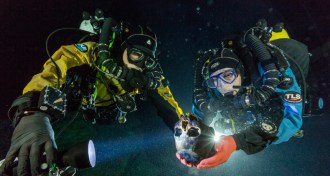 Anthropology
AnthropologyTeen’s skeleton ties New World settlers to Native Americans
Underwater cave discovery in Mexico shows genetic range of New World’s ancient Asian colonists.
By Bruce Bower -
 Astronomy
AstronomyMilky Way’s far side reveals some secrets
Variable stars provide first direct measurements of distance to the far side of the Milky Way.
-
 Earth
EarthTiny earthquakes may follow groundwater loss
Draining California’s aquifers may stress San Andreas Fault, triggering earthquakes and forcing mountains to rise.
By Meghan Rosen -
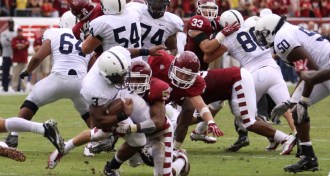 Neuroscience
NeurosciencePlaying football linked to brain changes
Division I college football players have smaller hippocampi, especially if they’ve had concussions.
By Nathan Seppa -
 Quantum Physics
Quantum PhysicsNext-gen quantum teleportation in just 2 photons
Researchers teleport quantum information between two photons instead of the standard three.
By Andrew Grant -
 Oceans
OceansDeepwater Horizon methane lingered longer than thought
Microbes may not have consumed methane from the 2010 Deepwater Horizon oil spill as fast as previously thought.